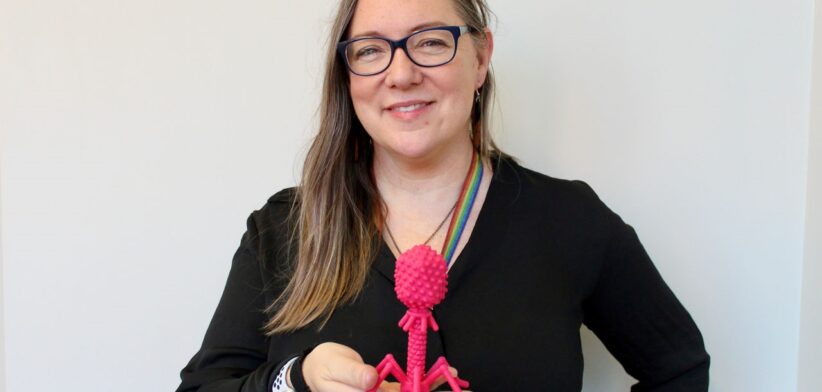A natural alternative to antibiotics is the focus of ground-breaking research under way in New Zealand.
A team from the University of Canterbury (UC) are working with bacteriophages, natural viruses that infect and destroy bacteria, to offer an alternative to the use of antibiotics, initially in agriculture.
Microbiologist Associate Professor Heather Hendrickson said the current work was centred on protecting honeybees and farmed salmon from serious bacterial diseases.
“About 80 percent of antibiotics globally are used in primary industries,” Associate Professor Hendrickson said.
“We want to pivot away from that kind of use and replace it with natural biocontrols like phages – and perhaps one day even explore their medical use (for humans).”
She said phages were highly specific, targeting only harmful bacteria and leaving beneficial microbes intact and by combining different phages in “cocktails”, researchers could also reduce the chance of bacterial resistance.
“You can think of phages like a shield or armour you apply in advance of being exposed to pathogens.
“While we’ve only discovered maybe 30 or 40 classes of antibiotics there are a trillion bacteriophages for every grain of sand on the planet, and 10 times more phages than bacteria.
“They are an untapped natural resource already in the soil, water, and even on our skin.”
Associate Professor Hendrickson said it was predicted that by 2050 more people would die of antibiotic-resistant infections than of cancer.
“One day we might be able to see phages being used to save human lives.”








